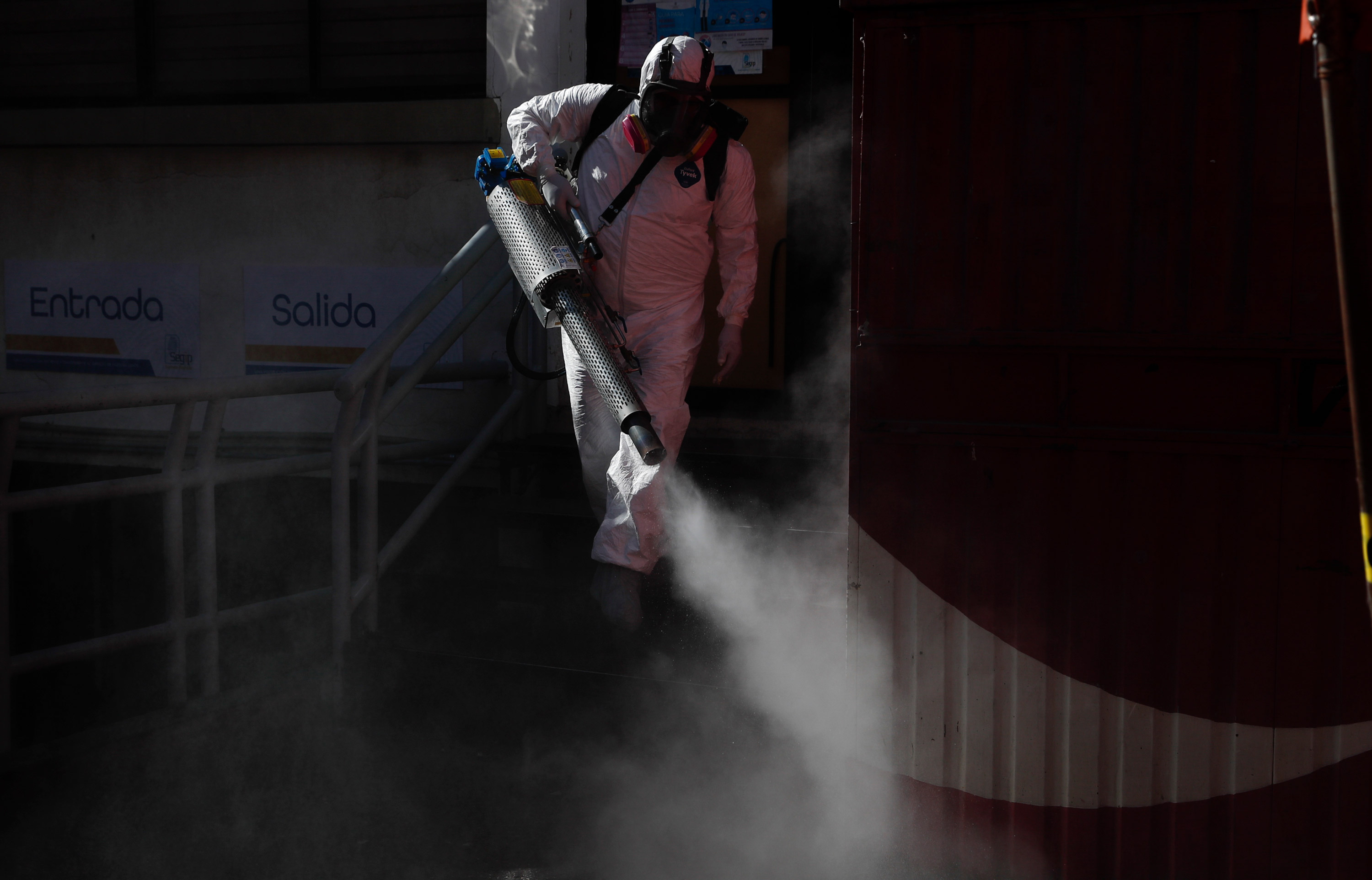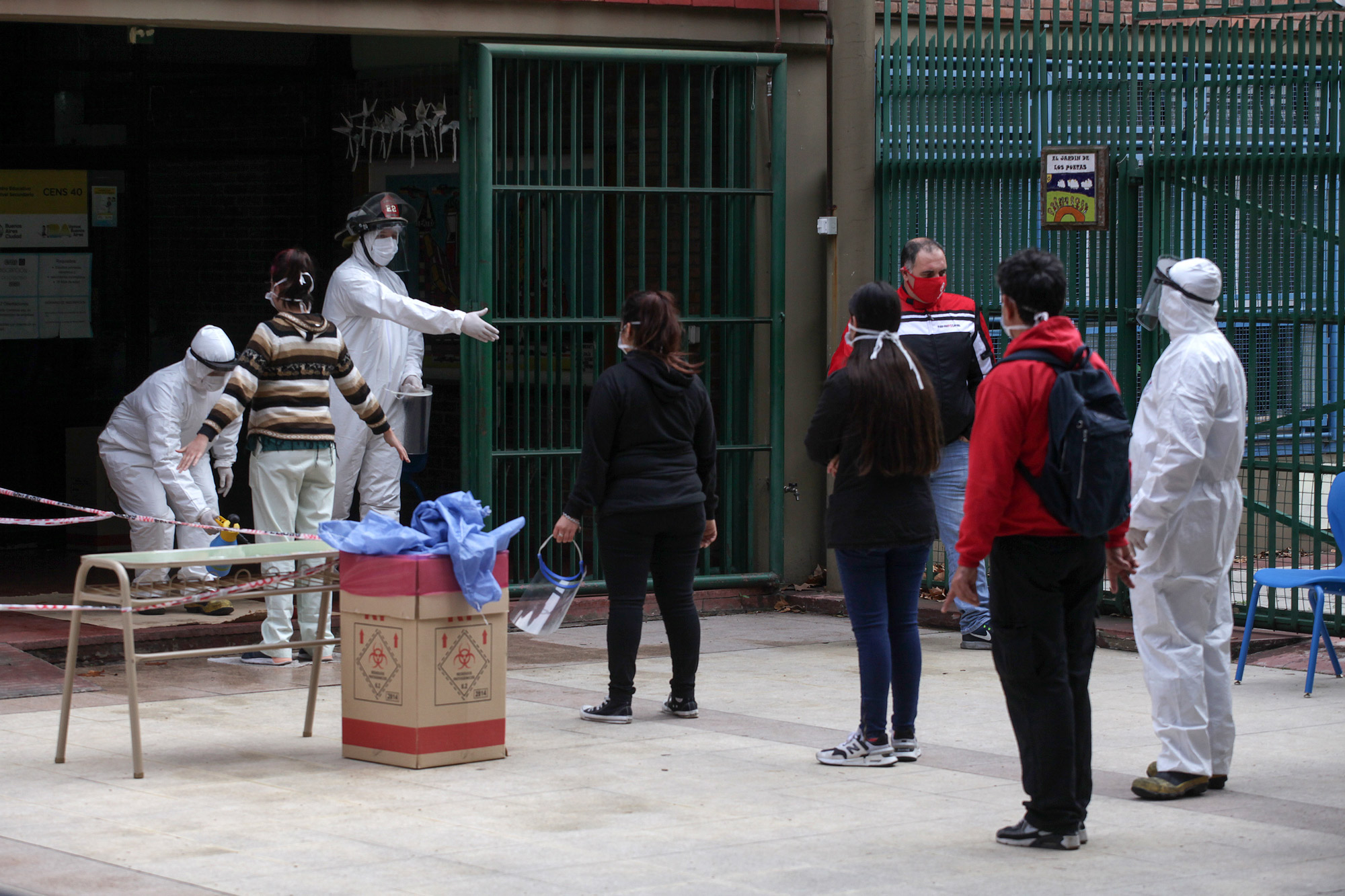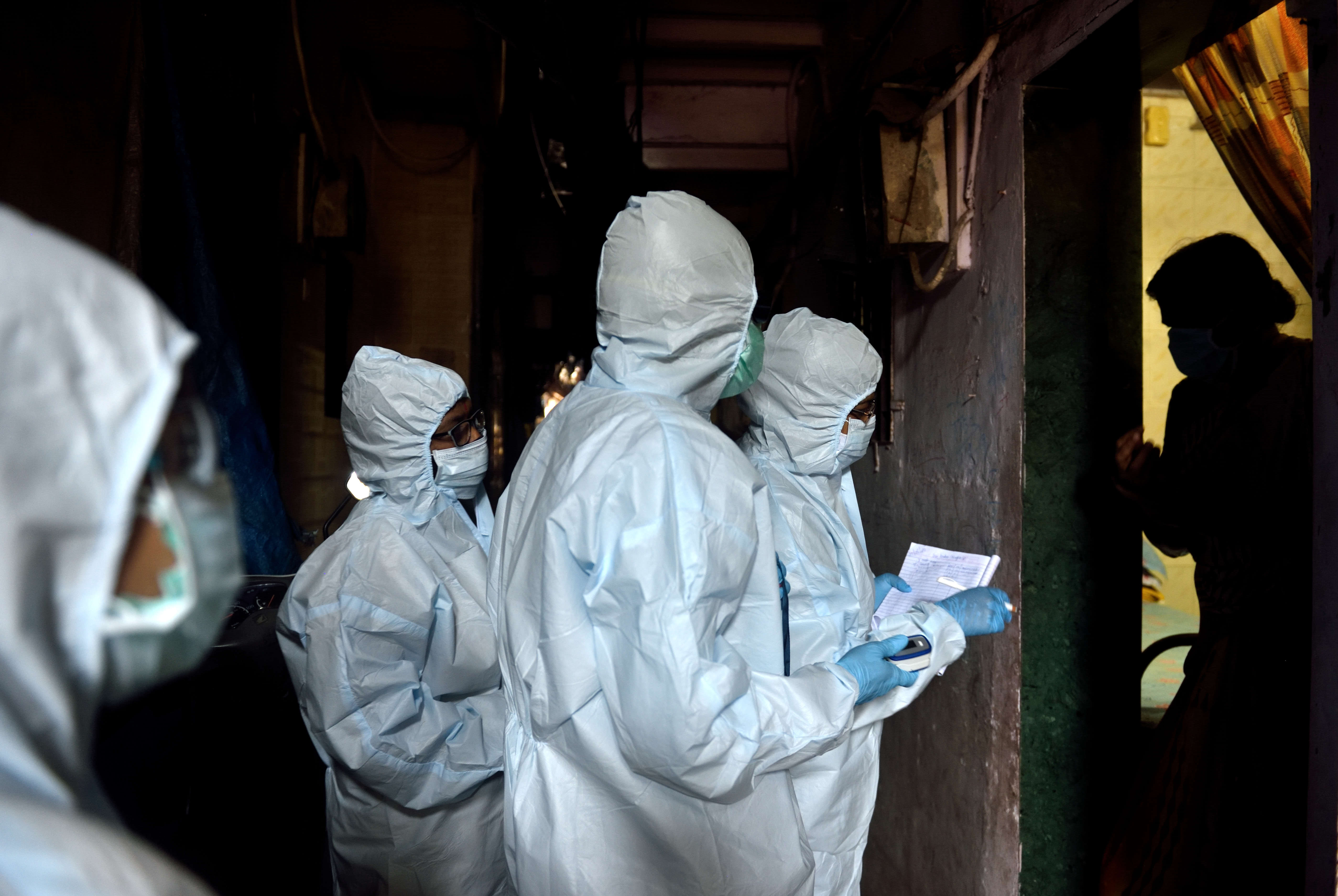College deans explain how their admissions priorities have changed in the Covid-19 pandemic
From CNN’s Annie Grayer
More than 160 college admission deans released a collective statement on Monday articulating how their priorities of the college admissions process have shifted as the result of the coronavirus pandemic.
The joint statement — signed by deans at numerous prestigious colleges and universities, including Harvard, Princeton and Yale — sends the signal that students’ academic work will be evaluated in the context of the obstacles created by the pandemic.
The statement emphasizes that students’ focus should be on self-care, care for others, promoting equity, balance and meaningful learning. It was sponsored by the Making Caring Common project at the Harvard Graduate School of Education.
The college admission deans call on students to share how they have been impacted by the pandemic, and to highlight ways in which they have provided service to others and their families during this turbulent time in their applications.
The statement also makes clear that students will not be penalized for not being able to engage in extracurricular and summer activities.
New York City hopes to avert labor layoffs in October as a result of budget cuts
From CNN's Kristina Sgueglia
New York City Mayor Bill de Blasio hopes to avert labor layoffs in October from the $1 billion budget cuts.
What's this about: Last week, Mayor Bill de Blasio said that New York City might have to cut as many as 22,000 municipal jobs to help cover a massive budget shortfall due to the coronavirus.
New York City's daily Covid-19 indicators continue to be under maximum thresholds, mayor says
From CNN's Kristina Sgueglia
 A medical worker administers a nasopharyngeal swab to a woman at the CORE Covid-19 testing site in the Queens borough of New York on June 25. Anthony Behar/Sipa USA via AP
A medical worker administers a nasopharyngeal swab to a woman at the CORE Covid-19 testing site in the Queens borough of New York on June 25. Anthony Behar/Sipa USA via AP The daily Covid-19 indicators remain under desired thresholds, New York City Mayor Bill de Blasio said Monday
What the numbers say: The daily number of people admitted to hospitals in New York City for Covid-19 is at 51, under the 200 threshold. The number is up but not a “huge amount” de Blasio noted.
The daily number of people in hospital ICU’s is at 297, under the 375 threshold.
The percent of people who tested positive for Covid-19 is at 2% — under the 15% threshold.
Indoor dining in NYC "now in question" for next phase of reopening, mayor says
From CNN's Kristina Sgueglia
 New York City Mayor Bill de Blasio speaks during a press conference in New York on June 29. NYC Media
New York City Mayor Bill de Blasio speaks during a press conference in New York on June 29. NYC MediaNew York City will reexamine and possibly pause indoor dining, which had been set to resume next week in phase three of reopening, Mayor Bill de Blasio said.
The decision comes as coronavirus cases continue to rise across the US.
The rest of phase three is moving on pace for next Monday, July 6, de Blasio said, “but the indoor dining element is now in question.”
He added that it may be paused or modified and there will be more to come in the next few days.
What is “clearly working” is outdoor dining, de Blasio said, adding “we want to double down on outdoor dining.” The city will be reaching out to every restaurant that has not yet applied to help foster this progress.
New York City moved into phase two of reopening last week, which allowed restaurants to resume dine-in service outside.
De Blasio also announced today that barbecue areas in parks will be open for this coming July 4 weekend.
#
Miami-Dade mayor on Covid-19 surge: Young people are disregarding the rules
From CNN's Tina Burnside
Miami-Dade Mayor Carlos Giménez said the reopening of beaches is not the reason for the spike in coronavirus cases in South Florida — it's "younger people basically disregarding the rules."
"It's coincidental that two weeks after demonstrations happen here in Miami-Dade county, a lot by young people, that we've had this spike," Giménez said during an interview on CNN on Monday.
The mayor said he is closing the beaches for Fourth of July weekend to avoid the surge of people who are thinking about coming to the beach for the holiday.
"I was afraid, though, of a surge of people coming in for the Fourth of July weekend, and our inability, possible inability to control that. That's why we closed the beaches for the Fourth of July," Giménez said.
The beach closures come as Florida is among at least 10 states seeing a 50% or more increase in Covid-19 cases compared to the previous week.
WATCH:
Coronavirus death toll in Bolivia passes 1,000
From CNN’s Sharif Paget in Atlanta
 A city worker disinfects the entrance to the government identification office in La Paz, Bolivia, on June 16. Juan Karita/AP
A city worker disinfects the entrance to the government identification office in La Paz, Bolivia, on June 16. Juan Karita/APBolivia reported a total of 1,014 deaths from Covid-19, according to figures released by the country’s Health Ministry Monday.
Bolivia now exceeds the 1,000-figure mark, with the addition of 44 new deaths reported in the last 24-hour period, according to the ministry’s statistics.
There are 848 new infections across Bolivia, bringing the total figure of confirmed cases to 31,524, Monday’s statistics show.
Argentina reports more than 2,100 new Covid-19 cases
From CNN’s Claudia Rebaza in London.
 Members of Plan DETECT operation test people in the Palermo neighborhood for symptoms compatible with COVID-19 in Buenos Aires on June 24. Carol Smiljan/NurPhoto via Getty Images
Members of Plan DETECT operation test people in the Palermo neighborhood for symptoms compatible with COVID-19 in Buenos Aires on June 24. Carol Smiljan/NurPhoto via Getty ImagesArgentina reported 2,189 new Covid-19 cases as the total number of infections reached 59,933, according to data released by the country’s Health Ministry on Monday morning.
The country’s death toll stands at 1,245, with 13 new deaths.
During the Ministry’s morning briefing Carla Vizzotti, Health Access Secretary, highlighted that almost 95% of the new cases reported belong to the Buenos Aires metro region (AMBA).
On Friday evening, Argentina’s President Alberto Fernández reimposed a lockdown in the metro area of Buenos Aires due to “cases growing exponentially.” Fernández announced that residents will have to stay at home unless they are performing essential work or purchasing necessary provisions from July 1 to July 17.
The president said that “practically 97 percent” of the cases reported in the last few days had been reported in the Buenos Aires metropolitan area.
President Fernández himself has been in self-isolation due to the pandemic at his official residence Quinta de Olivos since June 17.
India's Maharastra state extends lockdown until July 31
From journalist Esha Mitra
 Health care workers take the temperature and pulse rate of a resident in Dharavi, a densely-populated slum in Mumbai, India, on June 25. Satish Bate/Hindustan Times/Getty Images
Health care workers take the temperature and pulse rate of a resident in Dharavi, a densely-populated slum in Mumbai, India, on June 25. Satish Bate/Hindustan Times/Getty ImagesThe state of Maharashtra, home to the financial hub Mumbai and Bollywood film production, will continue with lock down measures until July 31 as the number of cases steadily rise.
The state government has issued fresh guidelines for what it has named "Mission Begin Again." This includes movement for non-essential activities to be restricted within neighborhoods in the Mumbai Metropolitan Region.
Only those going to work in offices and emergencies will be allowed unrestricted movement, the statement added.
"It is also directed that unrestricted movement will be permitted only for attending place of work and bonafide humanitarian requirement including medical reason.”
All essential shops, e-commerce activity for essential and non-essential items, all industrial units that are currently operational and home delivery of food will be allowed.
All essential and non-essential shops and market, except malls and market complexes, will be allowed to open from 9 am to 5 pm.
Wearing of masks, social distancing and maintaining personal hygiene will continue.
New data highlights shortage of contact tracers in hotspot states
From CNN Health's Jacqueline Howard
Health officials have long called contact tracing — following and monitoring the contacts of a person infected with the coronavirus — a key to help stop the spread of Covid-19. Yet many of the hardest hit states still haven't built up contact tracing to meet what has been recommended.
In April, the National Association of County and City Health Officials estimated that communities across the United States would need 30 professionals per 100,000 people in the community to be involved in contact tracing, given the magnitude of the Covid-19 pandemic.
Now in eight Covid-19 hotspots emerging nationwide, there are far fewer contact tracers than that estimate, according to new data obtained by CNN from Nephron Research, an independent health care research firm that has been monitoring contact tracing across states. The group's latest data report shows that as of Monday:
"The majority of 'hot spot' states fall short on tracing," the Nephron Research report says.
The only states in the nation that have at least 30 contact tracers per 100,000 people, according to the Nephron Research data, are:
When asked how the United States is doing with contact tracing, the nation's top infectious disease expert, Dr. Anthony Fauci, told CNN: "I don’t think we’re doing very well."
What the experts say: Instead of doing contact tracing just by phone, communities need to have "boots on the ground" and do it in person, Fauci, director of the National Institute of Allergy and Infectious Diseases, said during an interview with CNN’s Elizabeth Cohen that aired Sunday night as part of the Aspen Ideas Festival.
Fauci noted that it’s difficult to do contact tracing with coronavirus, since in hotspots, 20% to 40% of those infected are asymptomatic, and in those cases, "contact tracing doesn't work no matter how good you are because you don't know who you're tracing."

 5 years ago
912
5 years ago
912 

